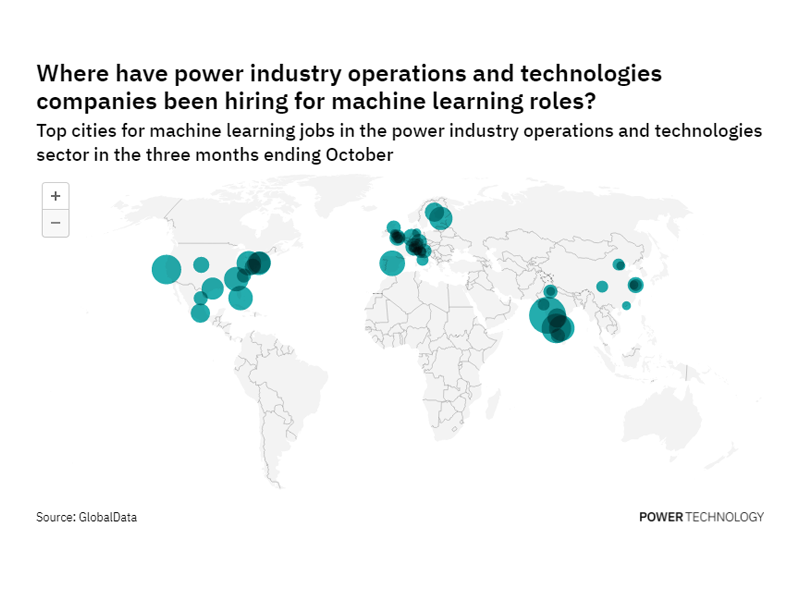
Asia-Pacific was the fastest growing region for machine learning hiring among power industry companies in the three months ending October.
The number of roles in Asia-Pacific made up 28.6% of total machine learning jobs – up from 20.2% in the same quarter last year.
That was followed by Europe, which saw a 6.5 year-on-year percentage point change in machine learning roles.
The figures are compiled by GlobalData, who track the number of new job postings from key companies in various sectors over time. Using textual analysis, these job advertisements are then classified thematically.
GlobalData's thematic approach to sector activity seeks to group key company information by topic to see which companies are best placed to weather the disruptions coming to their industries.

US Tariffs are shifting - will you react or anticipate?
Don’t let policy changes catch you off guard. Stay proactive with real-time data and expert analysis.
By GlobalDataThese key themes, which include machine learning, are chosen to cover "any issue that keeps a CEO awake at night".
By tracking them across job advertisements it allows us to see which companies are leading the way on specific issues and which are dragging their heels - and importantly where the market is expanding and contracting.
Which countries are seeing the most growth for machine learning roles in the power industry?
The fastest growing country was India, which saw 17.4% of all machine learning job adverts in the three months ending October last year, increasing to 26% in the three months ending October this year.
That was followed by the UK (up 2.6 percentage points), Italy (up 2.1), and Finland (up 1.7).
The top country for machine learning roles in the power industry is the US which saw 37.3% of all roles in the three months ending October.
Which cities are the biggest hubs for machine learning workers in the power industry?
Some 4.7% of all power industry machine learning roles were advertised in Pune (India) in the three months ending October – more than any other city.
That was followed by Bengaluru (India) with 4.7%, San Francisco (US) with 3%, and Chennai (India) with 2.2%.


